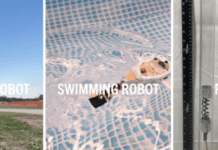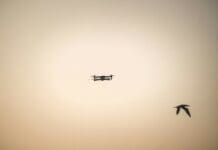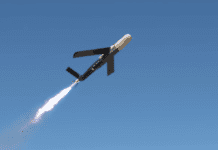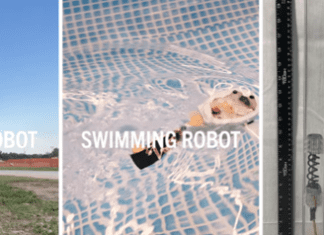This post is also available in:
 עברית (Hebrew)
עברית (Hebrew)
Space debris is a term used to describe human-made objects of varying sizes that are orbiting Earth and are no longer being used, posing collision hazards to operational spacecraft and the International Space Station.
Astroscale’s ADRAS-J spacecraft (Active Debris Removal by Astroscale-Japan) is essentially an in-orbit garbage truck. It recently managed to achieve a successful rendezvous with an aging second-stage H-2A rocket and is now preparing to conduct a detailed examination, orbiting around it and capturing images.
Since the rocket’s upper stage (which was launched back in 2009) doesn’t have its own GPS data, it is difficult to make precise location determinations for a rendezvous and proximity operations (RPO) mission. Astroscale’s operations teams in Japan and the UK leveraged limited ground-based observations to successfully maneuver the ADRAS-J within a few hundred kilometers of the rocket’s upper stage.
The satellite’s camera identified the rocket, and the images were processed using Astroscale’s Angles-Only Navigation algorithms. Eijiro Atarashi, ADRAS-J project manager at Astroscale Japan, has stated: “Starting Angles Only Navigation is a huge milestone for the ADRAS-J mission, highlighting the expertise and teamwork among Astroscale teams in Japan, the UK, and the US. This brings us one step closer to further advancing our RPO capabilities and our understanding of space debris, reinforcing our commitment to the sustainable development of space.”
According to Interesting Engineering, the ADRAS-J is fitted with a range of onboard rendezvous payload sensors, so it can safely approach its targets and gather essential relative navigation data (like distance and attitude). The mission’s success hinges greatly on the ability to coordinate and switch between these sensors.
RPO (rendezvous and proximity operations) play a crucial role in upcoming servicing missions that could involve inspection, repair, refueling, upgrading, or assembly tasks. It involves the capability or action of two or more separate space objects that are deliberately maneuvering close to each other using various rendezvous techniques. ADRAS-J is the first-ever endeavor to safely approach, assess, and survey sizable existing space debris through RPO techniques.
The mission is expected to conclude by May 2024 and heralds a new era of RPO missions that are focused on fostering a sustainable space environment.


























